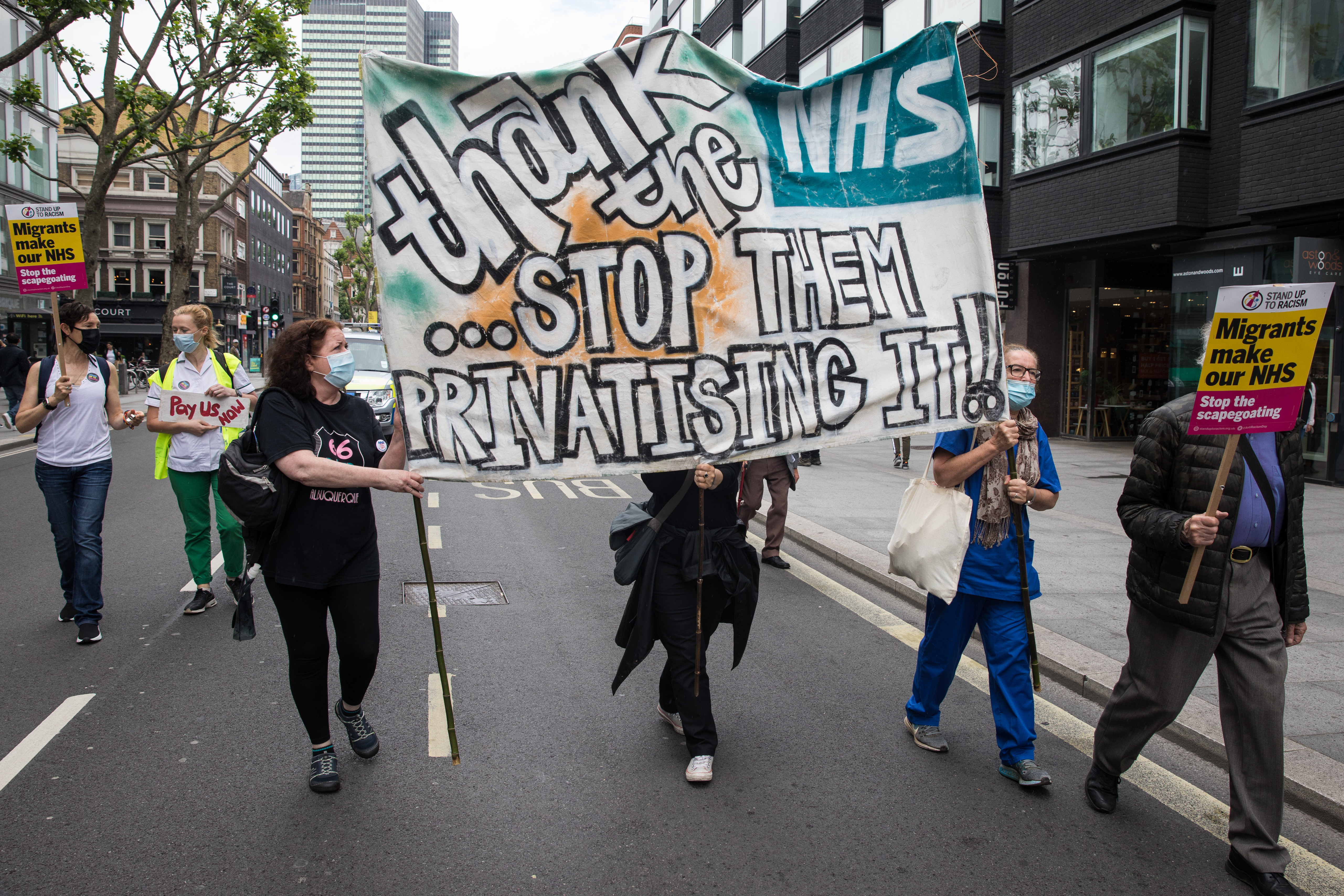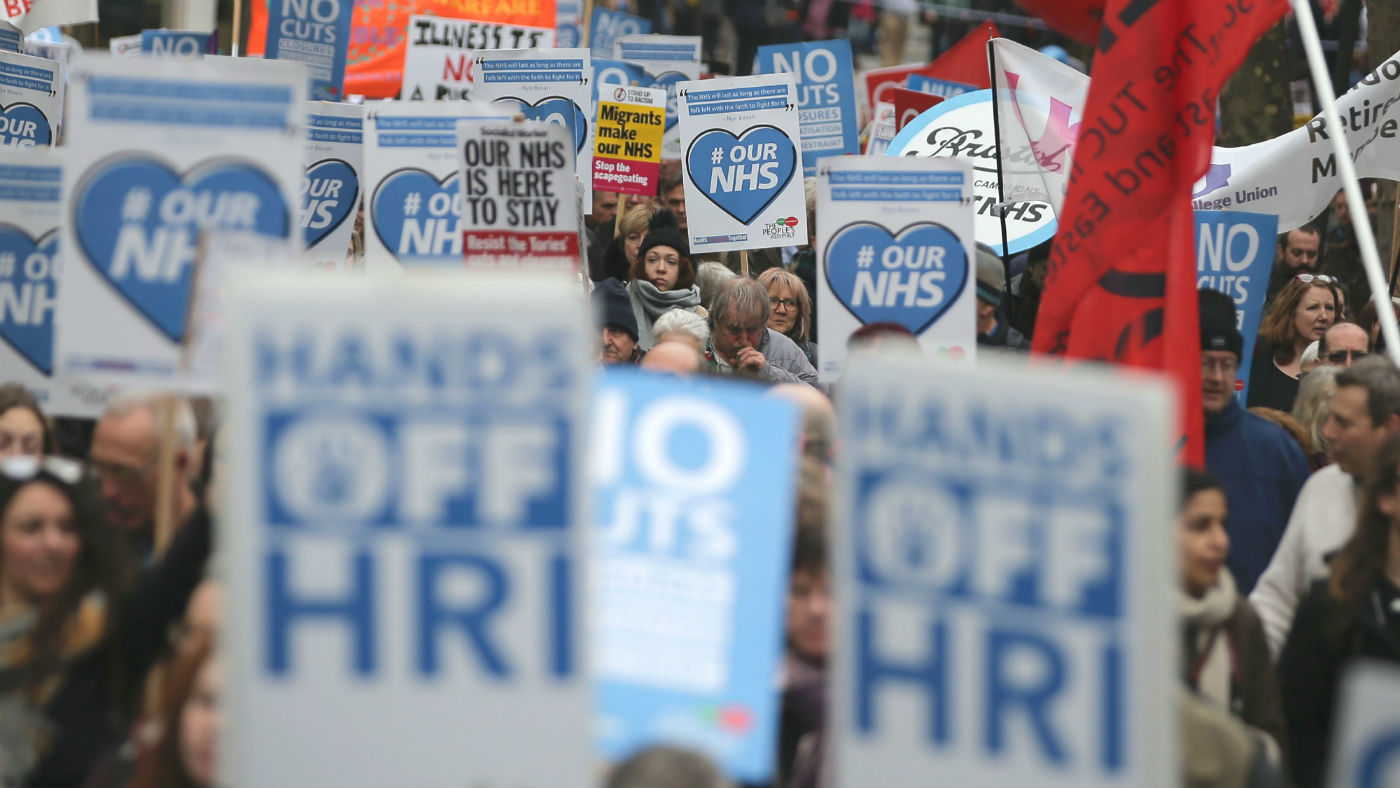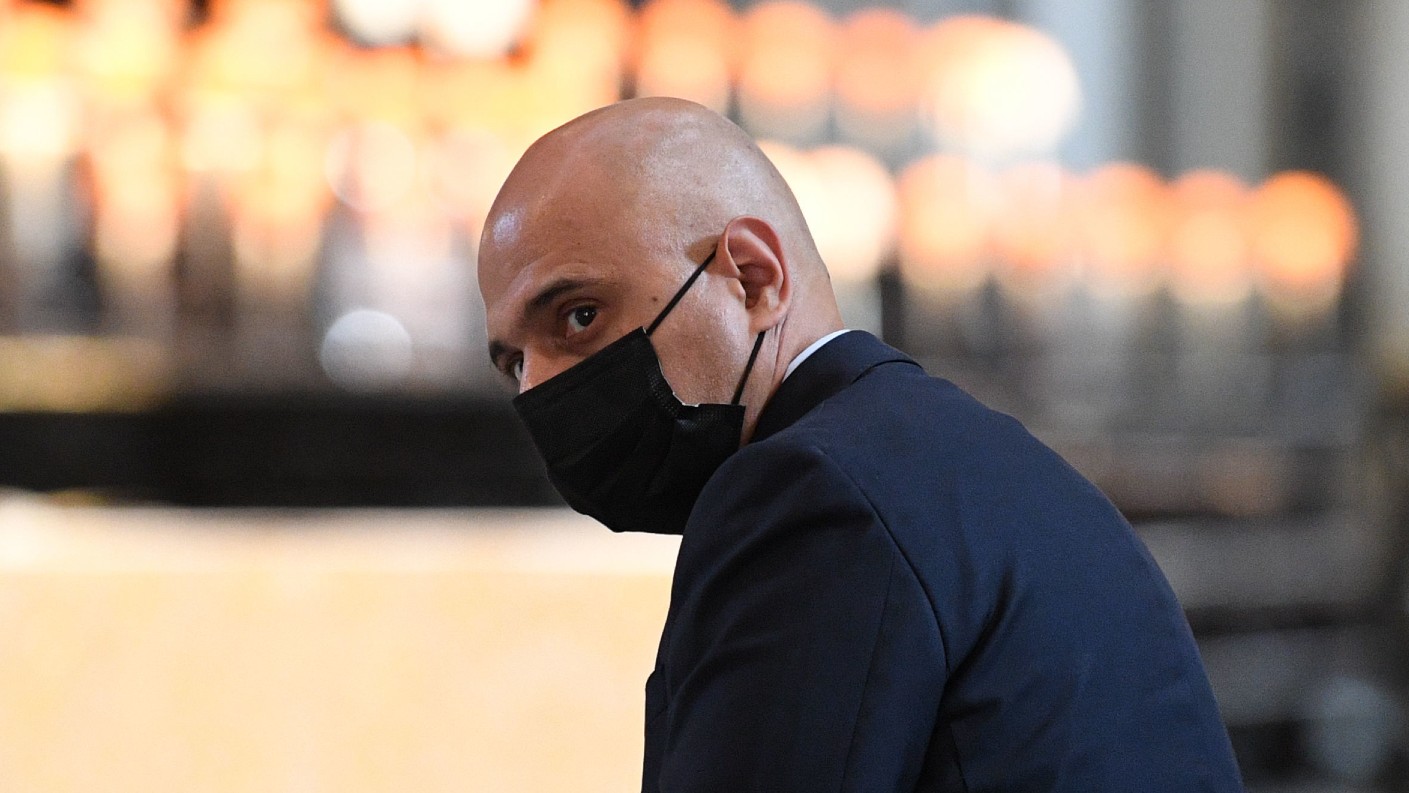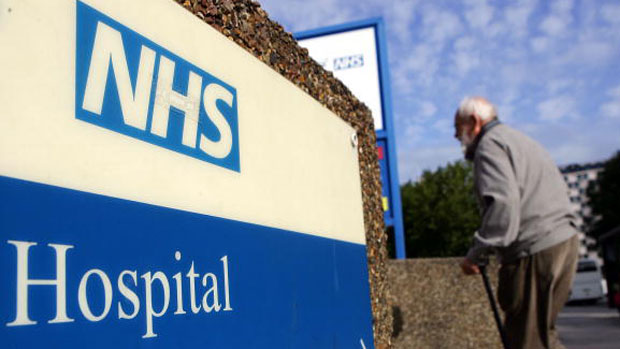Will the Health and Care Bill really privatise the NHS?
Controversial proposals have been branded the ‘NHS privatisation bill’ by Unite union

A free daily email with the biggest news stories of the day – and the best features from TheWeek.com
You are now subscribed
Your newsletter sign-up was successful
The government’s controversial Health and Social Care Bill is heading to the House of Lords after “stumbling” through the Commons this week, said The Guardian.
The bill, which is the first piece of primary legislation on health and social care in England since 2012, is focused on restructuring parts of the NHS to make England’s public health services more integrated.
The Unite union has branded it the “NHS privatisation bill”, with general secretary Sharon Graham saying it will be “used to further run down the NHS and to bring in more privatisation by the back door”. But Health Secretary Sajid Javid has dismissed objections as “complete nonsense”.
The Week
Escape your echo chamber. Get the facts behind the news, plus analysis from multiple perspectives.

Sign up for The Week's Free Newsletters
From our morning news briefing to a weekly Good News Newsletter, get the best of The Week delivered directly to your inbox.
From our morning news briefing to a weekly Good News Newsletter, get the best of The Week delivered directly to your inbox.
Despite Javid’s denials, anti-privatisation campaigners have continued to warn against the bill, claiming it could entrench the role of private sector firms in the health service.
Will private firms ‘contol the purse strings’?
The proposals include the establishment of 42 independently run Integrated Care Systems (ICSs) that will cover the whole of the country, “controlling purse strings and setting five-year plans”, explained The Mirror. Each ICS will oversee the local NHS across areas containing one to two million people.
These will remove “traditional divisions between hospitals and family doctors, between physical and mental health, and between NHS and council services”, said NHS England – divisions that have meant “too many people experienced disjointed care” in the past.
A free daily email with the biggest news stories of the day – and the best features from TheWeek.com
Anti-privatisation campaigners have expressed concern over the make-up of these ICSs, which will include representation from councils, charities, trusts and local authorities, as well as Integrated Care Boards (ICBs). These ICBs will be “accountable for NHS spend and performance within the system” and will have the power to decide on the type of healthcare that groups in their local area will receive, according to the government.

Sajid Javid has ‘absolute power’
Anger has been sparked by the decision to allow these powerful ICBs to include representatives of private health firms, as well as NHS clinicians and council public health leaders. Under Javid’s plan, said The Mirror, private sector appointees to ICBs will be blocked only if they “could reasonably be regarded as undermining the independence of the health service”.
What’s more, the health secretary has “seized power to overrule the independence of any ICS”, said Polly Toynbee in The Guardian. This means Javid can “upend their decisions on mergers or appointments according to political whim or cronyism”. He also has “absolute power” over the appointments of all directors to the ICBs.

In the Commons this week, Labour tried to block the bill from allowing any private healthcare representatives (except for GPs) on these influential health-commissioning boards.
“In Bath, in Somerset, we have seen Virgin Care get a seat on the shadow ICS,” said shadow health secretary Jon Ashworth, describing the situation as “unacceptable”.
His party colleague Richard Burgon and Cat Hobbs, the founder of public ownership campaigning organisation We Own It, were quoted in The Mirror as saying that the bill “entrenches an even greater role for private companies in our NHS, one where private companies not only profit from people’s ill health but increasingly get to decide who gets what treatments and when”.
More contracts for cronies?
Another major criticism of the bill by anti-privatisation campaigners is a change to the procurement rules that govern how the NHS locally buys care for people.
The proposal is designed to cut red tape and save time and money, said The Mirror, but the British Medical Association has warned that the rules “allow contracts to be awarded to private providers without proper scrutiny or transparency”.
Under the new bill, there is “every possibility” that private companies “will have the opportunity to extend their contracts or even be awarded new contracts without competition”, wrote Sian Norris in Byline Times.
The government is already facing “accusations of cronyism after it emerged that some firms were given access to a High Priority Lane which fast-tracked their bids for personal protective equipment (PPE) contracts”, said The Independent.
But not just private providers at the table
However, major voices in the health industry have disagreed that the inclusion of private sector appointees to ICBs and changes to NHS procurement rules are steps towards privatising England’s health service.
The Nuffield Trust’s Brexit programme lead Mark Dayan and senior fellow Helen Buckingham said they did not see a widespread “corporate takeover” of the NHS as a likely effect of the bill.
“There is nothing in the bill that would change the NHS from being a publicly funded service, free at the point of use except for existing charges for services like dentistry,” they wrote.
Dayan and Buckingham added that the NHS has paid private providers to deliver free care since it was founded in 1948 and that money has gone to private “secondary care” services since the early noughties.

Referring specifically to the inclusion of private providers on ICBs, Dayan and Buckingham noted that “NHS leaders, GPs, council leaders and independent non-executives will also be at the table”. Unlike private firms, they wrote, the bill insists that all boards must include them, while meetings will be held in public and “decisions must be transparent”.
“Why is it any more likely that a representative of a private provider will succeed in getting more money, rather than the representatives of NHS trusts or GPs?” they added.
Similarly, health minister Edward Argar has argued that “no one will be appointed to an ICB who would undermine the independence of the NHS”, The Mirror added.
The bill is now heading to the House of Lords, where several influential Conservative peers have said they will attempt to amend the government’s blueprint for how health and social care will work going forward, before sending it back to the Commons.
Kate Samuelson is The Week's former newsletter editor. She was also a regular guest on award-winning podcast The Week Unwrapped. Kate's career as a journalist began on the MailOnline graduate training scheme, which involved stints as a reporter at the South West News Service's office in Cambridge and the Liverpool Echo. She moved from MailOnline to Time magazine's satellite office in London, where she covered current affairs and culture for both the print mag and website. Before joining The Week, Kate worked at ActionAid UK, where she led the planning and delivery of all content gathering trips, from Bangladesh to Brazil. She is passionate about women's rights and using her skills as a journalist to highlight underrepresented communities. Alongside her staff roles, Kate has written for various magazines and newspapers including Stylist, Metro.co.uk, The Guardian and the i news site. She is also the founder and editor of Cheapskate London, an award-winning weekly newsletter that curates the best free events with the aim of making the capital more accessible.
-
 The ‘ravenous’ demand for Cornish minerals
The ‘ravenous’ demand for Cornish mineralsUnder the Radar Growing need for critical minerals to power tech has intensified ‘appetite’ for lithium, which could be a ‘huge boon’ for local economy
-
 Why are election experts taking Trump’s midterm threats seriously?
Why are election experts taking Trump’s midterm threats seriously?IN THE SPOTLIGHT As the president muses about polling place deployments and a centralized electoral system aimed at one-party control, lawmakers are taking this administration at its word
-
 ‘Restaurateurs have become millionaires’
‘Restaurateurs have become millionaires’Instant Opinion Opinion, comment and editorials of the day
-
 A real head scratcher: how scabies returned to the UK
A real head scratcher: how scabies returned to the UKThe Explainer The ‘Victorian-era’ condition is on the rise in the UK, and experts aren’t sure why
-
 How dangerous is the ‘K’ strain super-flu?
How dangerous is the ‘K’ strain super-flu?The Explainer Surge in cases of new variant H3N2 flu in UK and around the world
-
 The ‘menopause gold rush’
The ‘menopause gold rush’Under the Radar Women vulnerable to misinformation and marketing of ‘unregulated’ products
-
 How the care industry came to rely on migrant workers
How the care industry came to rely on migrant workersThe Explainer Government crackdown on recruiting workers abroad risks deepening care sector crisis, industry leaders warn
-
 Could medics' misgivings spell the end of the assisted dying bill?
Could medics' misgivings spell the end of the assisted dying bill?Today's Big Question The Royal College of Psychiatrists has identified 'serious concerns' with the landmark bill – and MPs are taking notice
-
 Washwood Heath: Birmingham's pioneering neighbourhood health service
Washwood Heath: Birmingham's pioneering neighbourhood health serviceIn the Spotlight NHS England chair says there is a 'really good argument this is the model for the future'
-
 The UK's first legal drug consumption room
The UK's first legal drug consumption roomThe Explainer 'Potentially transformative moment in UK drugs policy' as The Thistle opens in Glasgow
-
 How can the UK solve the adult social care crisis?
How can the UK solve the adult social care crisis?Today's Big Question New commission announced to turn our buckling care sector around: yet more delay or finally a way forward?